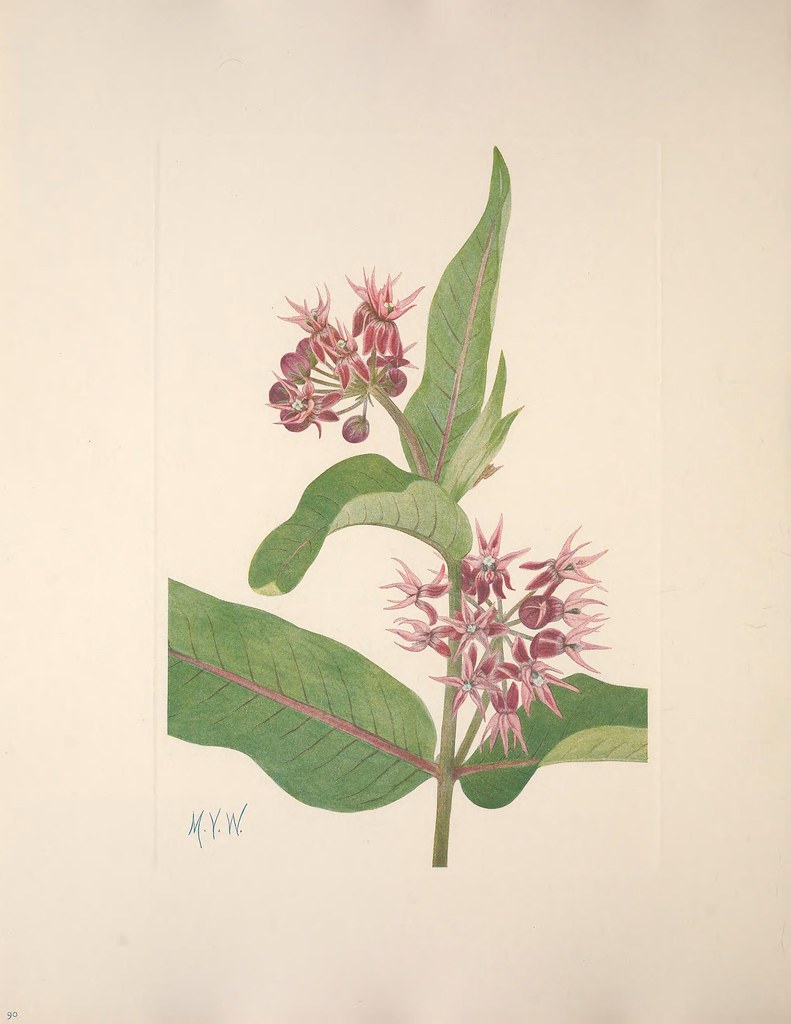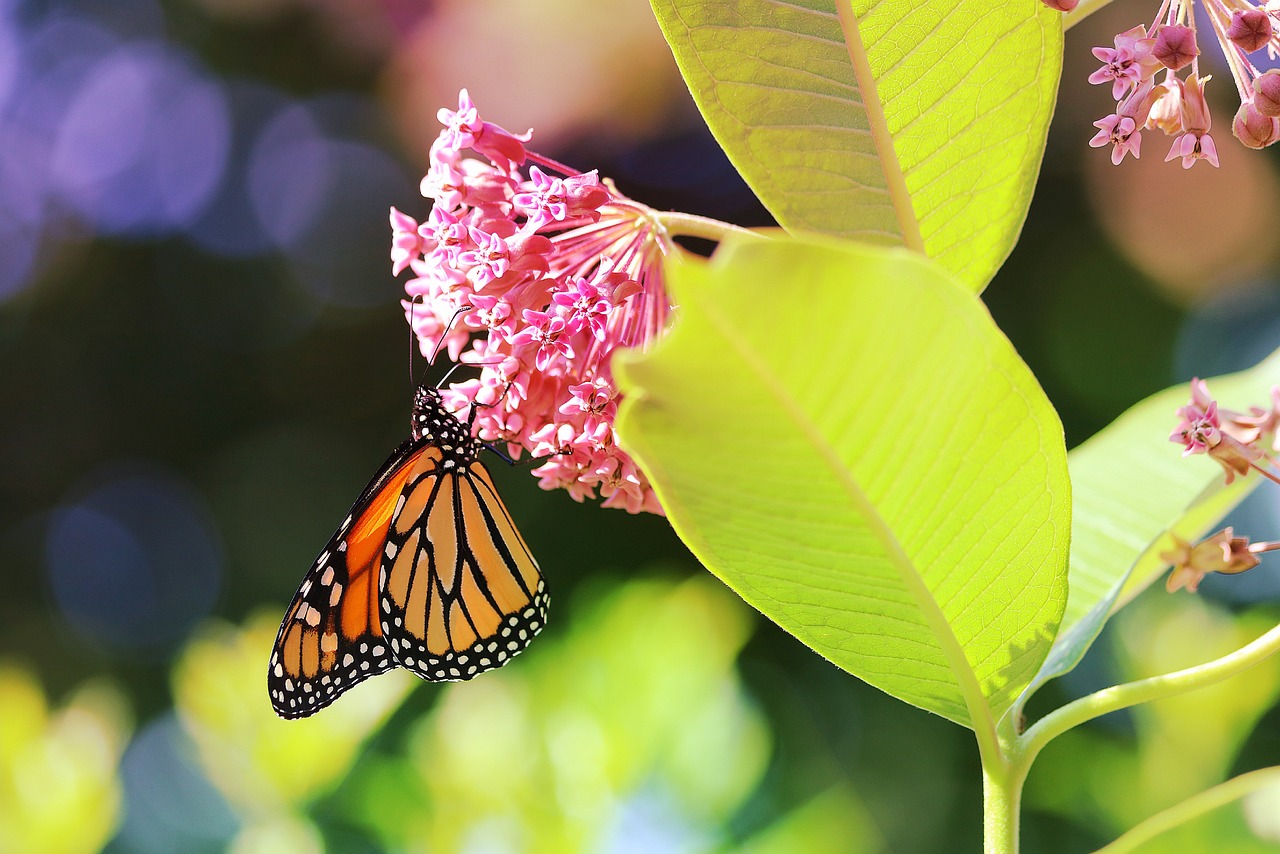Asclepias syriaca
Common milkweed (Asclepias syriaca) is well-known as the sole food source for monarch butterfly larvae. It has also long been used in medicine, food, and fiber work by North American people.1 Cherokee physicians used the plant to treat backache, venereal diseases, mastitis, dropsy, and constipation. They also, along with the Iroquois and Rappahannock people, used milkweed sap to treat warts, ringworm, and bee stings. Traditional Mohawk medicine uses dried, pulverized, and boiled milkweed as part of a contraceptive concoction.2
Dr. Stephen West William’s herbarium references common milkweed, likening it to asparagus in his 1849 Report on the Indigenous Medical Botany of Massachusetts.3 He also adds that it can be used to ease pain, akin to the traditional Cherokee use, and clear phlegm. Other plants of the Asclepias genus are also used in traditional remedies. This is fitting, given that Asklepios is the Greek god of medicine. Be careful, however, because cardiac glycosides, an active component of milkweed, can be toxic in large doses.4

A. syriaca is native to the Eastern United States and Canada. Though it can grow up to 6 feet tall, the average plant grows 3 – 4 feet.5 It has broad, oblong, reddish-veined leaves of a light green hue and pink, star-shaped flowers that bloom from late spring into summer. The flowers give rise to prickly seed pods which split open to release silk-tailed seeds. When injured, the plant leaches a sticky, white sap.
- “Common Milkweed.” USDA NRDC. Accessed May 1, 2024. https://plants.usda.gov/DocumentLibrary/plantguide/pdf/cs_assy.pdf. ↩︎
- Kindscher, Kelly. Medicinal wild plants of the prairie: An ethnobotanical guide. Lawrence (Kan.): University of Kansas Press, 1992. ↩︎
- Williams, Stephen W. Report on the Indigenous Medical Botany of Massachusetts, 1849. ↩︎
- Pei, Diana. “Milkweed Plant Can Cause Serious Poisoning.” Poison Control, 2024. https://www.poison.org/articles/milkweed-can-cause-serious-poisoning-204. ↩︎
- “Asclepias Syriaca – Plant Finder.” Missouri Botanic Garden. Accessed May 1, 2024. https://www.missouribotanicalgarden.org/PlantFinder/PlantFinderDetails.aspx?kempercode=b480. ↩︎
